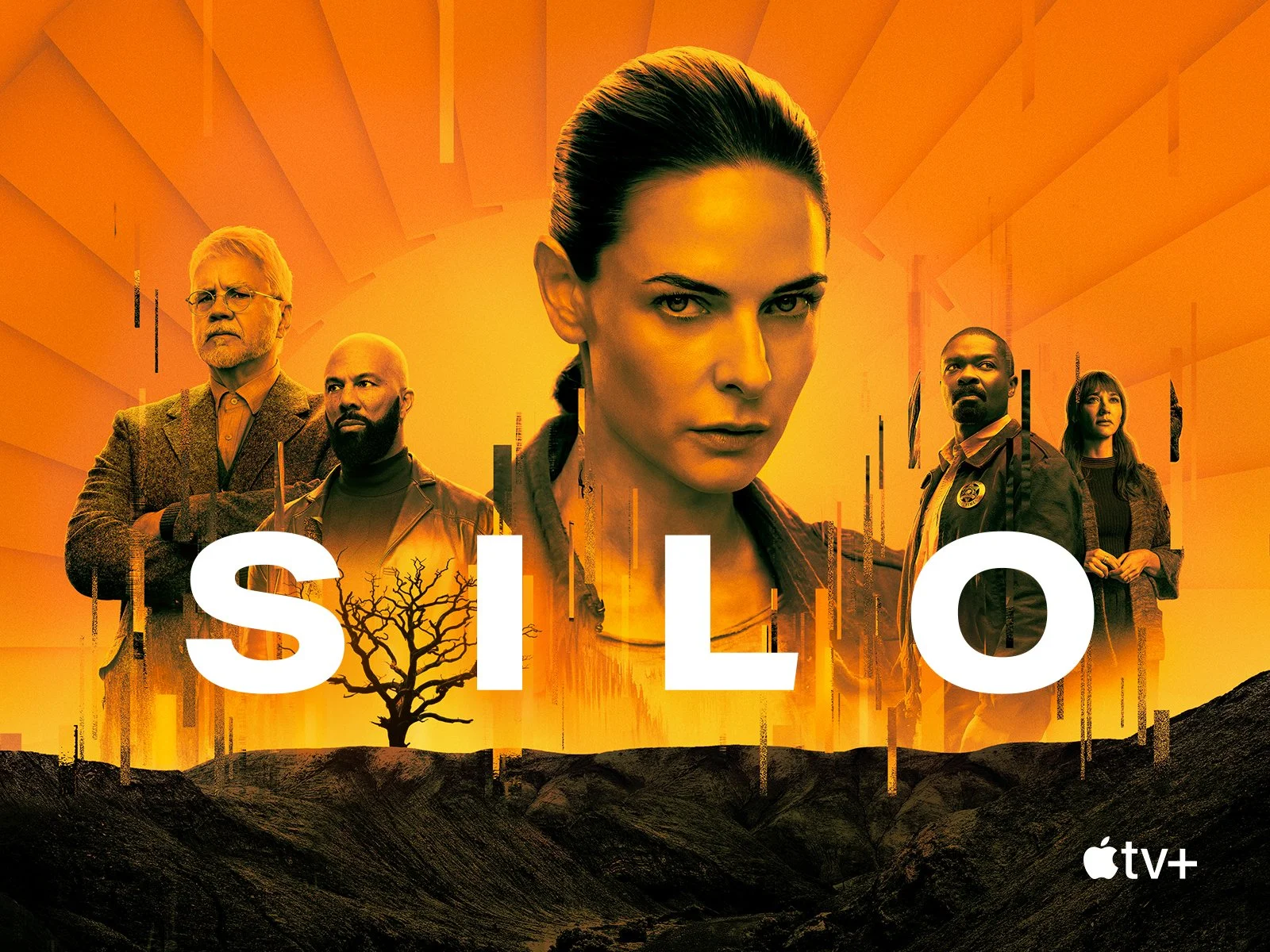Silo, silos, Taylor and teens
Silo is, to my eyes, a big show. It’s built around a big star (Rebecca Ferguson), and features others (Tim Robbins, Common). It has been commissioned for four seasons, finishing the plot arc. It probably costs millions of dollars per episode to make. It’s on a mainstream streaming service.
Three times in the last two weeks I have mentioned the show to friends and family, to be met with a blank response. They’ve not heard of it.
Now, I am a sci-fi nerd. Which would explain in part why I know about it. Why my social media feed is, at times, full of references to it. But everything is sci-fi these days. Fallout is on the side of buses. Marvel and Star Wars are the biggest franchises in the world. It’s not like sci-fi is some nerdy corner of television.
So why are my friends not aware of it? The answer I reach for most naturally is that it’s about choice. A well worn tale.
Instead of three or four TV channels, we now have infinite media options. Given the array of different streaming services, and the choice within them - as well as the incredible variety of other appeals to our eyeballs - it’s perhaps not surprising that three people don’t know of a single show. Especially as it goes out on what is, in spite of the Apple brand, the sixth most popular streaming service in the UK (Netflix has ~6x as many subscribers as Apple).
More, smaller silos
This answer suggests that the array of choice available to us now has contributed to there being new cultural ‘silos’, determined not so much by preference (sci-fi) but by access (subscriptions). This is somewhat counter to the idea of cultural fracture that I have posited in the past.
What I have previously argued is that given the infinite choice on offer online, people gravitate towards more niche interests, finding their own small tribes, and assembling a public identity at their intersection. You don’t need to attach yourself to the local mods or rockers any more (or in my generation, indie kids and ravers), and be bound by their tastes in fashion, music, hairstyles and modes of transport. You can pick and choose your preferences in every cultural sphere and get validation from each of the tiny cliques in which you participate.
I still think this is true to a large extent. But it doesn’t take account of the cultural properties from which people are excluded, perhaps by wealth or financial choices, perhaps by other barriers like religious beliefs or social pressures, and perhaps by simple inertia. Can you be bothered to sign up for yet another service when you have more TV than you could ever watch available on the ones you already have?
Barriers to success
These barriers limit the spread of truly cross-cultural moments to those that can transcend them. Because they are on free-to-air services or because they are so big as to be universally available on all the paid services, or trigger people to find legal, or illegal, ways to access them. Like the new Taylor Swift album.
Obviously Swift’s music is available on all the music streaming platforms, as one of the biggest artists in the world. But her fame means the launch of a new album also cuts across media types, and taste boundaries. I put her new album on a couple of nights ago (Sunday) and one of my teens joined me. We both enjoyed it.
The following day (Monday) my feeds were full of criticism of the album, of its lack of originality and Swift’s apparent beef with Charli XCX. On social media, substack, and in most of the major papers. Love her or loathe her (or anywhere in between), Taylor Swift seems inescapable. And her popularity goes some way to reinforce part of my original theory.
Unlike the old social tribes that were pretty prescriptive, self-assembled identities require more acceptance from peers about your variance from their preferences. My teen can happily enjoy Taylor Swift without worrying that doing so in some way damages her broader identity that leans in a different direction. All her peers seem to equally have varying interests, only converging around the centre of the Venn diagram that is the foundation of their connection.
Of course, they’re human though. So, <sigh>, they can still be heard arguing about what is and isn’t ‘alternative’. Maybe things haven’t changed so much after all.

